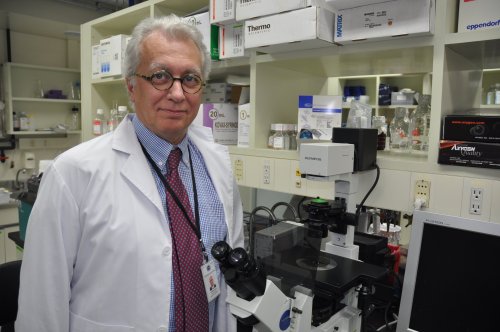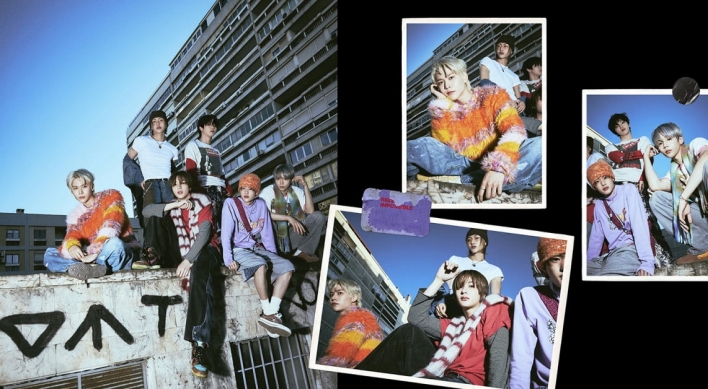IVI’s new chief looks to bring vaccines everywhere
By Korea HeraldPublished : April 30, 2012 - 19:06
Loucq hopes to establish closer ties with Korean organizations
The International Vaccine Institute introduced the successful development of a new cholera vaccine last year. But challenges still weigh on the vaccine distribution across the world due to low demand and small capacity.
“The problem we have today is that the company making the vaccine has a relatively small capacity,” IVI’s new director general, Dr. Christian Loucq, told The Korea Herald.
IVI, which is devoted to research in vaccine development and introducing vaccines to the developing world, is the only U.N. organization headquartered in Korea. At the end of last year, Loucq took office to head the independent international health organization, succeeding Dr. John Clemens.
“They say they will increase production when the demand will come, and the people who run the program say they will start the program, when the capacity increases,” the new director general added.
Currently, both IVI and the WHO are working on establishing a stockpile that could be used at a moment’s notice when outbreaks occur anywhere in the world.
“An example is when the epidemic started in Haiti, if the stockpile had been available, people could have decided on the spot to send vaccines, but the day the epidemic came, there were no vaccines available, so we have this stupid situation,” he said.
The International Vaccine Institute introduced the successful development of a new cholera vaccine last year. But challenges still weigh on the vaccine distribution across the world due to low demand and small capacity.
“The problem we have today is that the company making the vaccine has a relatively small capacity,” IVI’s new director general, Dr. Christian Loucq, told The Korea Herald.
IVI, which is devoted to research in vaccine development and introducing vaccines to the developing world, is the only U.N. organization headquartered in Korea. At the end of last year, Loucq took office to head the independent international health organization, succeeding Dr. John Clemens.
“They say they will increase production when the demand will come, and the people who run the program say they will start the program, when the capacity increases,” the new director general added.
Currently, both IVI and the WHO are working on establishing a stockpile that could be used at a moment’s notice when outbreaks occur anywhere in the world.
“An example is when the epidemic started in Haiti, if the stockpile had been available, people could have decided on the spot to send vaccines, but the day the epidemic came, there were no vaccines available, so we have this stupid situation,” he said.

The WHO recently held a meeting to decide on the logistics of a world stockpile for cholera vaccines, yet the question of economics still weighs on the decision because “as soon as those companies see a demand coming up, they’ll start increasing their capacity.”
The business and distribution end of vaccines is out of IVI’s hands though, what they concentrate on is developing vaccines.
“Our mission is to develop vaccines for diseases found in developing countries and the people who need it the most,” he said.
Up next is the introduction of a dengue vaccine with the first on the verge of being licensed.
“That’s an important economic aspect,” Loucq said. “There are donors ready to put money on the table, like the Gates Foundation, UNICEF, and so on, so let’s make it happen.”
During his four-year tenure in Seoul, Loucq is looking to establish closer ties with Korean organizations.
“Korea is coming up very fast, there are companies investing in a big way in vaccine manufacturing and development, I’m looking forward to establishing connections with those companies because I think that joining the industrial efficiency of Korea in research, we certainly can help bring a lot to developing countries,” he said.
IVI is also working on finding ways to reduce the cost of vaccines. Today’s Cholera vaccines are cheap at $1.85 a dose but other vaccines like the one for human papillomavirus, or HPV, which has been linked to cervical cancer in women, is still relatively expensive.
“We build a case to show them that the cost of the vaccines outweighs the future savings of a vaccine. At times people translate lives as money,” he said.
Another challenge is having investors understand the epidemiology of diseases. Generally, investors want to see results quickly so that they can have a quick return on their investments, but in vaccinology, finding a cure sometimes takes decades.
“What we are doing today, the work in medicine and global health is done with the research of yesterday and we always need to think that the work of tomorrow will be done with the research of today,” he noted. “We always say here we work on vaccines to control diseases and save lives and also to help with the economic burden of diseases.”
By Yoav Cerralbo (yoav@heraldcorp.com)
-
Articles by Korea Herald






![[New faces of Assembly] Architect behind ‘audacious initiative’ believes in denuclearized North Korea](http://res.heraldm.com/phpwas/restmb_idxmake.php?idx=644&simg=/content/image/2024/05/01/20240501050627_0.jpg&u=20240502093000)












![[Today’s K-pop] Sunmi to drop single next month](http://res.heraldm.com/phpwas/restmb_idxmake.php?idx=642&simg=/content/image/2024/05/03/20240503050545_0.jpg&u=)